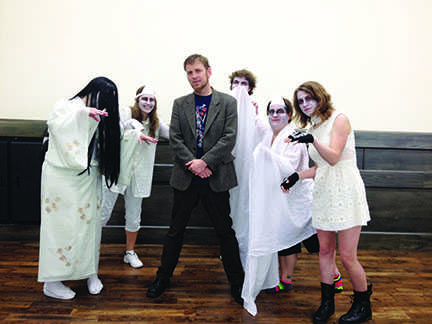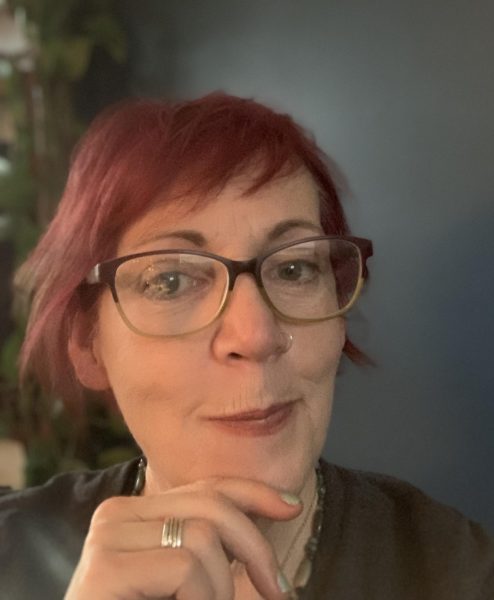Zack Davission Brings Tales of Japanese Ghosts to EvCC

Zack Davisson surrounded by the Japanese club dressed as yūrei.
Halloween is in the air, and houses are decorated with ghosts made of white sheets with black eyes. Yūrei, Japanese ghosts, are not like these ghosts of the western world, yūrei are real. On Oct. 29, Zack Davisson came to EvCC to speak about his new book, Yūrei, the Japanese Ghost.
“Yūrei have very specific culture values, to the Japanese people this is what makes them real,” says Davisson. Most yūrei look the same, white kimono, long black hair, pale face and no feet. This image derived from the painting by Maruyama Okyo, The Ghost of Oyuki. “White symbolizes purity in Japan,” says Davisson, and a white kimono is only worn by brides, priests and corpses.
There are different types of Japanese ghosts, and “depending on what the last thought is, that’s what kind of ghost you will become,” Davisson says. Some examples of ghosts are onryō, which means grudge or anger spirit, and shinrei, which translates to heart spirit, a “not so horrifying term,” says Davisson.
Chelsea Zybach, a student in her last year at EvCC, asks “Is it offensive for people to dress up as yūrei since it’s such a significant thing?” to which Davisson replies, “No not at all,” but if just dressed in a white kimono, “you’re probably going to get some strange looks.”

How did you get here?
I took Journalism 101 in spring 2014, and realized that I was interested in pursuing it as a career. Andrew became my advisor,...




